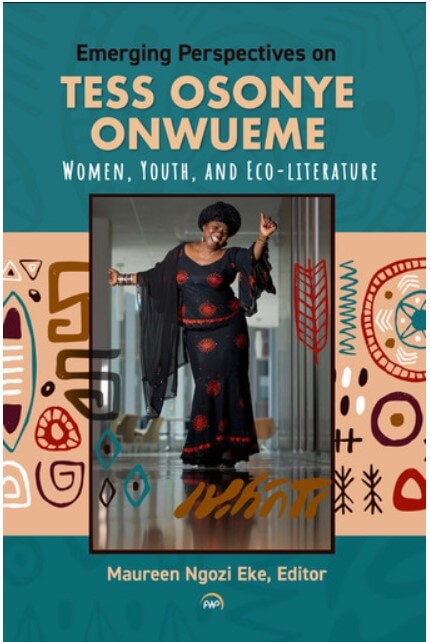
Sheri Anderson, senior specialist professor and director of theatre arts in the Music and Theatre Arts Department, authored a chapter in the recently published, “Emerging Perspectives on Tess Osonye Onwueme: Women, Youth, and Eco-literature.”
The chapter, “When African Drums Turn Talkative: Music and Spectacle as Extensions of Identity in Selected Writings of Osonye Tess Onwueme,” explores the ways in which Onwueme uses African and African Diaspora music and spectacle as extensions of the characters’ personal and collective identities.
“Emerging Perspectives on Tess Osonye Onwueme: Women, Youth, and Eco-literature,” edited by Maureen Ngozi Eki, contains 24 essays and some interviews with Onwueme. The essays address a wide range of themes in Onwueme’s works, reflecting a diversity of theoretical and critical approaches from feminism, Black feminism/womanism, and performance studies to linguistics and ecocriticism. The essays also represent the perspectives of international scholars located in Africa, Asia, Europe, and the United States.
Today, Onwueme has established herself as one of the key voices in Nigerian drama in particular and in African drama in general. Her published collection of works includes 15 plays, a collection of fables, and essays, spanning four decades. Her plays have been performed and studied in Africa, the United States, Europe, Asia, and the Caribbean.
Onwueme’s plays cover a diversity of issues, ranging from women’s representation and roles in a changing Nigerian (African) society, to women’s activism, gender/sexuality and power, eco-feminism (women’s protest against environmental devastation), as well as the impact of globalization and multi-national economics on African nations. The catalog of her thematic foci is extensive and such diversity enriches her works. Overwhelmingly, however, the central subjects of Onwueme’s plays are women, the youth, and the ordinary masses caught in a struggle against violence, traditional as well as colonial and postcolonial pressures.
